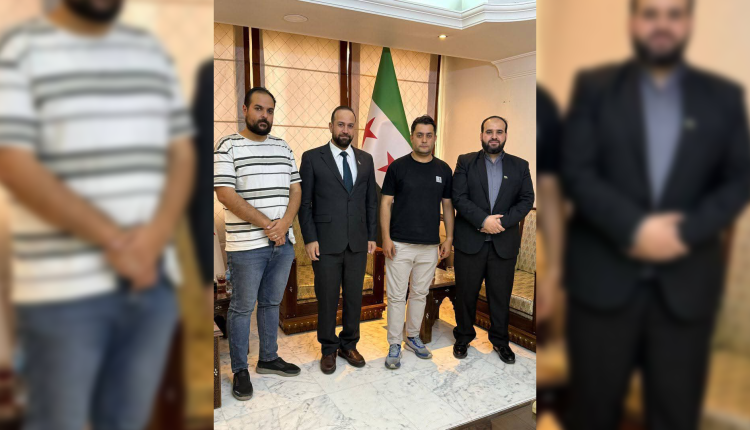Syrian Ministry Confirms Mistaken Detention of Two Kurdish Journalists in Damascus
By Kardo Roj
DAMASCUS, Syria (North Press) –
The Syrian Ministry of Information confirmed Thursday that two Kurdish journalists working for Iraq-based Channel 8 were mistakenly detained by a security agency while covering ongoing unrest in Ashrafiyat Sahnaya, a suburb southwest of Damascus.
The journalists, reporter Akram Saleh and cameraman Judy Haj Ali, had been reported missing by their outlet and press unions after contact with them was lost on Wednesday evening amid continued clashes in the area.
The Ministry, via a statement by Director of Public Relations Ali al-Rifai, described the detention as “erroneous,” attributing it to a misunderstanding by local security forces operating under heightened alert due to the volatile situation in the region. “Upon learning of the detention, the Ministry intervened immediately to coordinate with the relevant agencies and secure their release,” al-Rifai wrote in a post on Facebook.
The pair were released hours later, and appeared with Minister of Information and ministry officials in a photo released to state media, aiming to signal resolution and transparency.
Media Unions Demand Answers
Before the Ministry’s clarification, the Free Media Union in Qamishli and the Syrian Kurdish Journalists Network issued urgent appeals demanding clarity on the journalists’ whereabouts and calling for their immediate release. Both organizations warned that the incident set a “dangerous precedent” and violated Syria’s stated commitment to press freedom.
They highlighted that Saleh and Haj Ali were credentialed professionals working for a licensed media outlet within Syria, covering a matter of public interest—namely, the aftermath of recent violent clashes between armed groups and government forces in Ashrafiyat Sahnaya and Jaramana.
A Fragile Environment for Journalists
While the Ministry’s quick action averted a prolonged crisis, rights groups remain skeptical. “Even if resolved, this incident underscores the risks journalists continue to face in Syria—particularly those reporting from restive regions,” said a representative from the Syrian Kurdish Journalists Network in a phone call with North Press.
Both Saleh and Haj Ali are said to be in good health and have resumed contact with their families. However, colleagues say the emotional toll of the sudden detention—particularly in a climate of fear and misinformation—cannot be ignored.
A Pattern of Tension
The mistaken detention comes coincidentally with the killing of the mayor of Ashrafiyat Sahnaya and his son, an event that has further fueled tension in the Damascus countryside. Government forces only recently reached an agreement with local Druze leaders to de-escalate violence and reassert state control in the area.
Against this backdrop, freedom of the press has emerged once again as a flashpoint in Syria’s internal struggle between security imperatives and democratic reforms. While the Ministry of Information reiterated its support for press freedoms, advocacy groups have called for clearer protocols to prevent such incidents from recurring.

